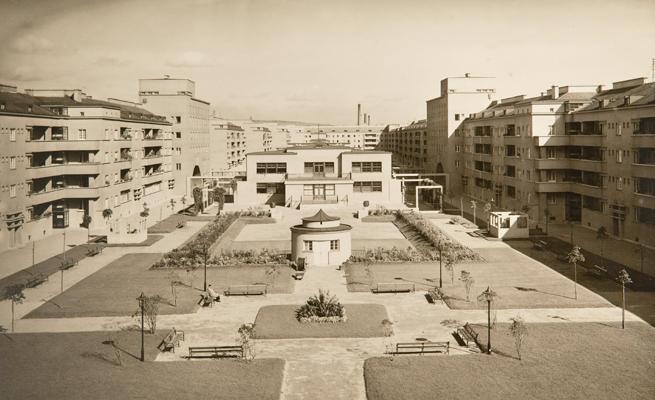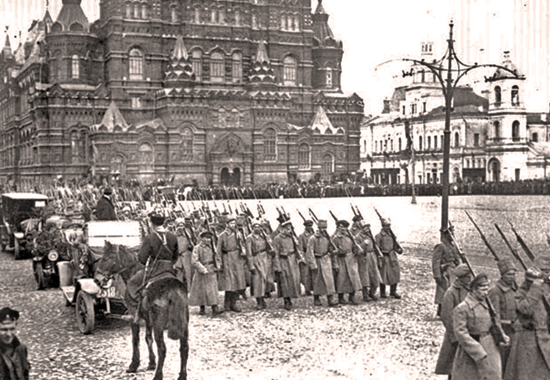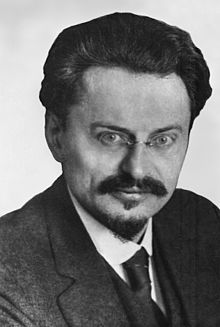Arctofire
Banned
The Red Century

An Alternative History of the German Revolution and the 20th Century
In our timeline, undoubtedly the biggest factors in the failure of the German Revolution was the murder of Karl Liebnecht and Rosa Luxemburg in January 1919. These were unifying figures, who were admired across the revolutionary left due to their tireless opposition to SPD revisionism and German involvement in the war. Their deaths made the communist movement lacking in unifying leadership at a critical moment in 1920 in the aftermath of the Kapp Putsch, where potentially the KPD could have taken power. You instead had a number of leaders, Paul Levi, Heinrich Brandler, and Karl Radek, who were lacking in experience and political skill, and who were not well known enough to gain the trust of the rank and file. Paul Levi was needlessly antagonising towards the KPD left, and this led to a split in 1919 which then meant that in the aftermath of the Putsch and the general strike and workers insurrections that followed, there was no unified direction.
So, in an alternative scenario, lets simply say that for whatever reason, Luxemburg and Liebnecht (or even just one of them) manage to escape from the Freikorps, maybe by leaving Berlin in the aftermath of the Spartacist Revolt like they were advised to. They gather their forces throughout the remainder of 1919, and because of their popularity, are able to get the USPD left to unify KPD that year, and avoid the breakaway Communist Workers Party (KAPD).
By March 1920, when the Kapp Putsch happens, it is the same as in our timeline. 12 million workers go on strike to put an end to the military coup, and in it's aftermath, the workers of the Ruhr rise up and form an army 80,000+ men strong. But because the left is less fragmented, the Ruhr Red Army is properly led by a unified command and is to hold off the Freikorp advance. Meanwhile, with the iron of struggle still flaming hot, Luxemburg and Liebnecht call on the workers of Germany to refuse to lay down their arms, and to overthrow the government which has fired upon them and capitulated to capitalism. The Ruhr Red Army is accompanied with risings in Berlin, Hamburg, Frankfurt, and Munich, and the government of Ebert and Schidemann is toppled.
PS: This is sort of mixture between a timeline and typical discussion thread. I am not knowledgeable enough nor have the time and patience to be able to write a fictional history book in pure prose, but I do want to get my ideas about this scenario across in a more dramatic and aesthetic way than just a typical thread. Hence the pictures, titles, and font. I also think a lot of timelines spend far too much time on the minutiae, and therefore don't ever get to the point of explaining their fictional world.

Of course the reactionary right attempts to stop this with everything they have. Freikorp units are sent as death squads to murder workers. However, despite all of their murderous terror, I think they would be limited with what they could do. The vast majority of the cities would have been in favor of the uprising, as they had been strongly associated with the left OTL, so the right would only have be able to rely on the most reactionary rural areas, which are lacking in wealth.
Between 1920 and 1923, Germany is in a state of civil war, but the left, having more popular support, prevails against the reactionary right, who are extremely divided and unpopular. By 1923, the last white forces surrender in Bavaria and East Prussia to form a government in exile, and Karl Liebnecht announces the victory of the German Democratic Republic against bourgeois counterrevolution
So, what would this new communist Germany look like, how would it relate to the Soviet Union? This is what I've been thinking...
The 1920s in Germany
Areas of Communist Control - Red

Germany leaves the German Civil War a profoundly weakened country. France and Britain, whom with which the new government had refused to comply by the Treaty of Versailles, cut off all trade links. Due to war fatigue from the general population, as well as the outbreak of the deadly Spanish Flu, the Entente cannot restart the war with Germany without risking revolutions in their own countries. They had supported the whites in the German Civil War, as the Ebert government had signed the peace treaty in 1919, but this meant they were seen as unpatriotic and stooges of foreigners. By the wars conclusion in 1923, 50,000 have been killed.
Poland also remains a thorn in the backside. The USSR and GDR had defeated Pilsudski's forces in what was known as the Eastern War, and had set up a puppet government under communist control. This further increases the tension between the communist forces of Russia and Germany, and the allies powers of Europe.
The communist government since coming to power nationalised all banks and industry and had workers run these institutions via democratic committees, collectivised all forests and large estates, abolished the remnants of the Prussian aristocracy, formally separated church and state, created a single payer, universal healthcare system, and gave equal rights to women. The state had control over the commanding heights of the economy and could plan according to need.
Rosa Luxemburg, a profound believer in multi party democracy, calls another constituent assembly in 1923 to draft a new constitution. Whilst united in their desire for revolution and opposition to bourgeois reaction and invasion by foreign powers, the KPD begins to fragment when it comes to domestic policy into two main factions.
Left: Want to focus on fomenting revolution in other countries, a pure soviet democracy constitution, pro collectivisation of agriculture, total collective ownership, in favor of Germany joining the USSR. Key Members: Rosa Luxemburg, Otto Ruhle, Paul Mattick, Anton Pannekoek,
Right: Want to focus on building up Germany, parliamentary democracy with strong role for workers committees and soviets, majority collective ownership (aside from small businesses), in favor of Germany remaining an independent country aligned with the USSR, want to attempt to reach some kind of temporary settlement with the west. Key Members: Karl Liebnecht, Paul Levi, Heinrich Brandler, Karl Radek, August Thalmier, Ernest Thalman
After the conclusion of the war, the KPD splits into the left-communist KAPD (Communist Workers Party of Germany) and the centrist marxist SAPD (Socialist Workers Party of Germany). The SAPD, representing the right faction, wins a plurality of the vote in the 1923 constituent assembly elections. This is due to mainly two factors.
1. The German people are tired of war. After the devastation the country by both the Great War, German Civil War, and Eastern War, most members of the German working class do not want to engage in revolutionary adventurism which may get them dragged into another conflict, but want to focus on building a brighter, better, and more peaceful future where the promises of socialism can finally be realised.
2. The bulk of the German socialist movement recognised the practicalities of governing as well as the overwhelming mood of the populace. They knew that joining the USSR would for the German people essentially mean the annexation of Germany by Russia, its historic enemy, and believed that Germany now needed a unifying force, to get initial opponents of the new regime to accept its legitimacy, such as artisans, shopkeepers, and sections of the petite bourgeoisie.
Approximately, these are the results:
SAPD: 32%
KAPD: 22%
SPD: 18%
Democratic Party: 16%
Zendrum: 6%
German People's Party: 6%
The constitution of 1923 is by far the most democratic constitution in the world. It proclaims the German Democratic Republic a 'free socialist republic' and as a 'workers state' and contains many quotations from the Communist Manifesto and tributes to Karl Marx. It recognises the role of the workers councils in the direct running of industry and the common ownership over the means of production, exchange, and control. The legislative consists of two houses, the National Assembly, elected directly via universal suffrage for all those over the age of 18 using proportional representation, and the Congress of Workers Councils, elected indirectly from workplace representatives in a bottom up fashion, elected by all those who work. The country also has a president, much to the distaste of the Left Opposition, elected via universal suffrage. The flag remains the black, red, and gold tricolor, and the national anthem Deutschlandlied is still the official state anthem, played alongside the Internationale.
August Thalmier becomes the first President of the GDR, with Karl Liebnecht becoming Chancellor, and Emil Barth as Chairman of the Congress of Workers Councils.
A comparison with the GDR from OTL would be Red Vienna, a period in the history of the City of Vienna from the early 20's to early 30's under the Austro-Marxists, and Sweden in the 1970s under the premiership of Olof Palme.
Overall, throughout the 1920s the new government implemented major reforms benefiting the working classes.
- Over 1 million new council houses were built, provided with full electricity, running water, central heating, and radios. Many were built as communal apartments, (Like Karl Marx-Hof in Vienna OTL)

- Hundreds of theatres, cinemas, and concert halls sprung up. Germany throughout the decade had a vibrant culture unique to the world. It's contributions to the fields of cinema were widely applauded, particularly films like Fritz Lang's Metropolis, which revolutionised the medium.

- The German economy grew at an average of 10% per year throughout the decade, doubling the size of the economy and overtaking the United States in terms of GDP per capita by 1929, despite the blockade.
- The government opted for a system of decentralised planning. Market mechanisms remained to determine the scale of supply and demand, but all banks 100% publicly owned, allowing the state to plan how to allocate resources for the benefit of the people
- Contraception was made widely available, and homosexuality and abortion was legalised.
- As aforementioned, universal single payer healthcare was implemented throughout the country, leading to greatly increased life expectancy, and greatly decreased infant mortality.
By 1927, the German government was in talks with France about trying to negotiate a settlement to the war. Paul Levi, the German foreign minister, believed that 'everyone lost the war' and that Germany should have to pay no more than it had already lost in the way of lives. Committed to peace across the continent, and determined to avoid another war, Germany accepted certain conditions of the Treaty of Versailles, such as demilitarisation of the Rhineland, and the withdrawal of troops from Poland, but refused to disarm until other nations did the same or accept responsibility for the war. Talks eventually resulted in progress however, and in 1928 France recognised the GDR and eased the blockade of German goods.
The GDR was a key ally of the Soviet Union, and the 1924 German-Soviet Friendship Pact virtually abolished all tariffs and restrictions on freedom of movement between the two nations. Faced with an economic blockade by the west, the Soviet Union was Germany's prime market during the 1920's, exporting automobiles and heavy machinery in exchange for grain.
To be continued, when I discuss the Soviet Union during this time period.....
Last edited:



